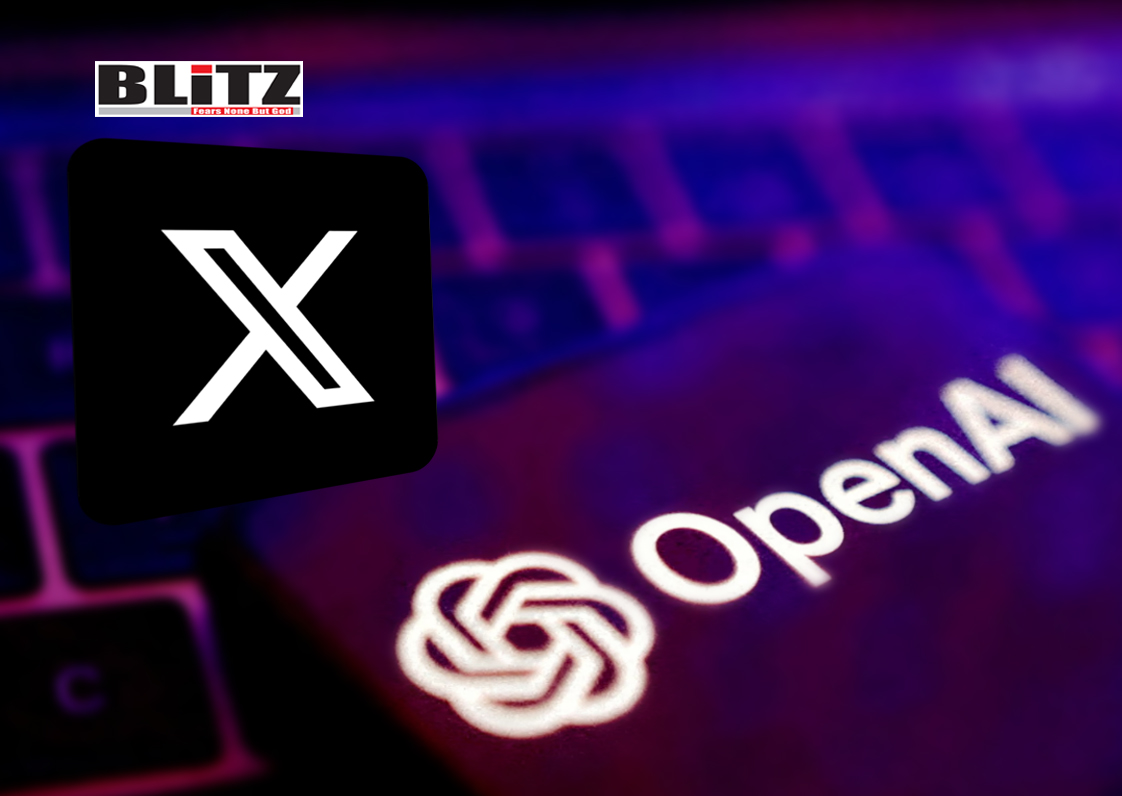OpenAI, the artificial intelligence giant behind ChatGPT, may be preparing to venture into the social media space with a new platform designed to rival Elon Musk’s X. According to a recent report from The Verge published on April 13, the company is internally testing an experimental app that features a feed primarily composed of AI-generated images-signaling a potentially radical departure from traditional social media formats and hinting at a future where machine-generated content drives online interaction.
Sources close to the matter told The Verge that OpenAI’s prototype includes a feed akin to those found on social media platforms like Instagram or X (formerly Twitter), but with a significant twist: the content populating this feed would come from AI rather than human users. This experimental app is reportedly still in early stages, with no official release timeline and no public confirmation from OpenAI regarding whether it will be launched as a standalone product or integrated into existing offerings like ChatGPT.
What makes this development particularly intriguing is OpenAI’s potential to redefine what a social media experience looks like in an age where generative AI is becoming increasingly capable. The idea of an AI-curated or AI-generated feed offers new opportunities for creativity, entertainment, and personalized interaction-but also raises complex questions about authenticity, disinformation, and the future of human expression online.
Should OpenAI proceed with releasing this app, it would escalate the already tense rivalry between CEO Sam Altman and Elon Musk. The two tech titans have a shared history-Musk was one of the original co-founders of OpenAI but departed the organization in 2018 amid disagreements over its direction and governance. Since then, tensions have only deepened.
Earlier this year, Musk reportedly offered to acquire OpenAI for a staggering $97.4 billion. Altman rejected the offer, allegedly responding, “No thank you but we will buy Twitter [now X] for $9.74 billion if you want.” The tongue-in-cheek remark-if accurately reported-reveals the mutual disdain and growing competition between the two.
Musk has since gone on to found his own AI venture, xAI, which has been integrated into the X platform. The product of that collaboration, Grok, is a conversational AI chatbot that pulls from X’s vast trove of user-generated data to produce real-time responses. Grok’s ability to access timely, platform-specific information has reportedly sparked envy among competitors, as it allows users to generate viral content that is both current and contextually aware.
If OpenAI launches its own social media platform, it would be a strategic move not just in the name of competition, but also in the race for data. Real-time, user-specific data is the lifeblood of modern AI development. Musk, Meta, and Google all leverage data collected from their massive user bases to train and fine-tune their AI models. By launching a platform where users interact with AI-generated content-and potentially contribute responses or feedback-OpenAI would secure a direct line to invaluable behavioral data to further improve its products.
Meta, too, is preparing to enter this space. According to reports, the parent company of Facebook and Instagram is working on an AI assistant with social media integration, alongside its own ChatGPT competitor. This prompted Altman to cryptically post on X in February, “ok fine maybe we’ll do a social app,” possibly referencing this very project.
ChatGPT has already proven itself to be a dominant force in the AI world, boasting 46 million new downloads globally last month, according to analytics firm Appfigures. While the app is currently positioned as a productivity and conversational tool, incorporating a social media feed could expand its utility and appeal dramatically. Whether this takes the form of a new tab within the existing app or a separate platform altogether remains to be seen.
Such a shift would mark a notable evolution in OpenAI’s strategic direction. Up until now, the company has focused on developing foundational models like GPT-4 and integrating them into partner platforms, including Microsoft’s suite of productivity tools. A move into social media would represent a step closer to consumer-facing dominance-bringing OpenAI into more direct competition with Big Tech incumbents like Meta and Google, as well as with Musk’s increasingly vertically integrated tech ecosystem.
Despite the excitement around this reported prototype, significant challenges lie ahead. The use of AI-generated images as the foundation of a social media platform could lead to new debates about misinformation, intellectual property, and the ethics of synthetic media. Without a human anchor to verify or contextualize content, such platforms may be vulnerable to manipulation or even exploitation.
Moreover, the use of social media as a data-mining tool for AI training raises privacy concerns, especially in the absence of transparent user consent and data governance policies. Regulatory scrutiny is already increasing across the EU and US regarding AI systems’ use of personal data, and a move into social media would only intensify this spotlight.
Whether or not OpenAI releases this experimental platform to the public, the very existence of such a project is a telling indicator of where the tech industry is headed. The convergence of social media and artificial intelligence is accelerating, with companies no longer content to develop tools-they want ecosystems. In this emerging world, engagement isn’t just about clicks or likes, but about shaping the data loops that power tomorrow’s most advanced models.
If successful, OpenAI’s social media endeavor could change not just how we interact online-but who we interact with. In a space where machines can create and curate entire feeds of content tailored for each user, the line between human and artificial interaction will continue to blur.
And if the Altman-Musk feud continues to evolve in the open, the battle for the next generation of digital platforms may be fought not just with lines of code, but with deeply personal stakes and visionary ambition.
Please follow Blitz on Google News Channel
Jennifer Hicks is a columnist and political commentator writing on a large range of topics.
openai-developing-social-media-app-to-challenge-elon-musks-x














Leave a Reply